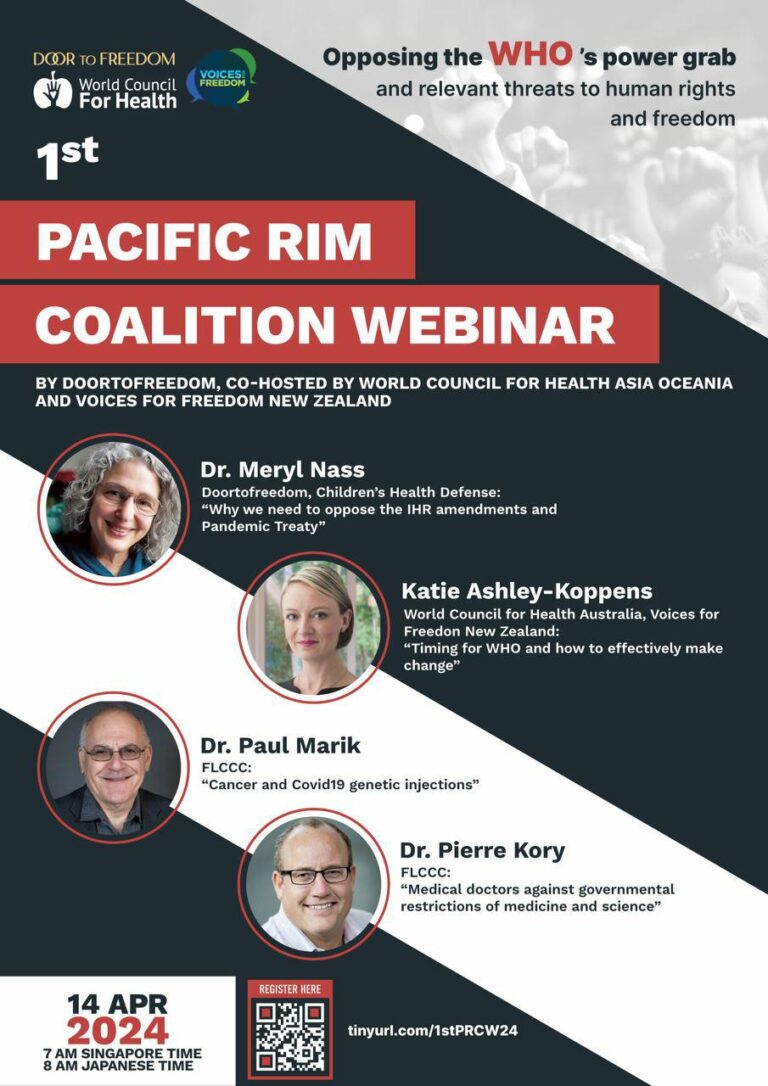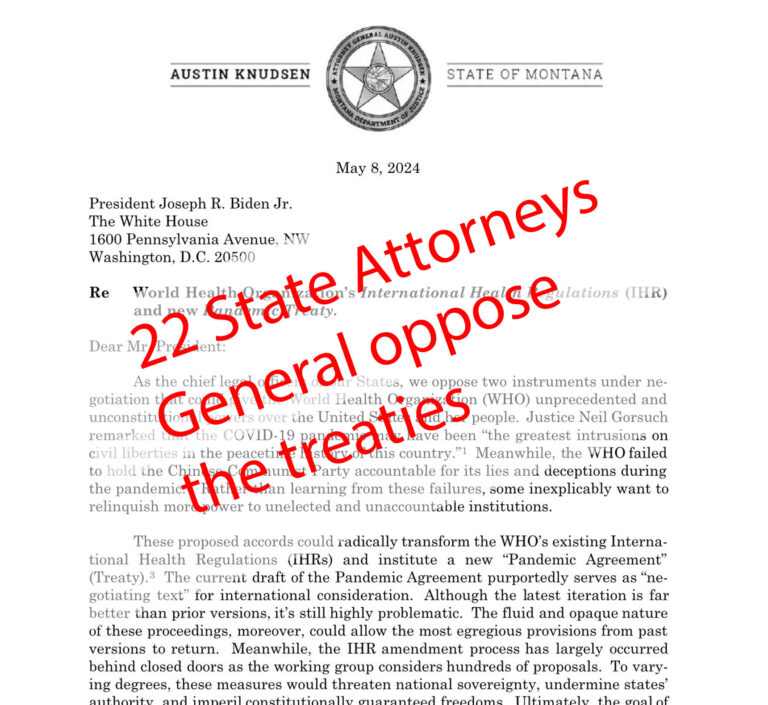The proposed amendments to the WHO’s International Health Regulations, and a proposed Pandemic Treaty/Accord/Agreement/CA+ (it has been given many names) have been created as a means of transferring management and control of pandemics or other health emergencies away from nation states to the WHO. The proposed documents require nations to impose censorship, using only the WHO’s public health narrative, and give the WHO vast powers to control what drugs may be used and which may be suppressed; control rapid vaccine development, manufacturing and deployment; create liability shields for these products; control travel at borders; require vaccine passports; and manage other aspects of life that are yet to be determined.
In May 2022, amendments that had been suggested by the United States to the WHO’s existing International Health Regulations were approved which will speed up the adoption of future amendments. This was agreed in back rooms at the World Health Assembly’s 2022 annual meeting, and there was no formal vote. The decision was made by “consensus” when no countries objected.
The amendments adopted in 2022 are still subject to the old rules, until the new amendments come into force in May 2024.
The old rules were that amendments would come into force 24 months after acceptance, and nations had a period of 18 months after acceptance to formally “opt out” of new amendments. Nations that “opt out” would be subject to the older version of the International Health Regulations instead of the new version.
The amendments adopted in May 2022 gave nations only 10 months in which to “opt out,” not 18 months, and cause the new amendments to come into force after only 12 months, not 24 months. These new timelines will apply to amendments that will be considered in May 2024. However, under the existing rules that are still in force, nations have until the end of November 2023 to opt out of the 2022 amendments that speed up the adoption of future amendments, which is 18 months after May 2022, or until the end of November 2023.
Nations that send a very brief (even one sentence) formal opt-out to the WHO regarding the May 2022 amendments will then continue to have 18 months (not 10) to opt out of future amendments, and 24 months after they are adopted, not 12, before any future amendments apply to their nation.
This will slow down the coming into force of amendments that we anticipate will be approved in May 2024, since their approval only requires a 50% plus one vote of the 194 nation members of the World Health Assembly. Instead of coming into force for nations in May 2025, they will not apply until May 2026. And for nations who opt out of the 2022 amendments, they will gain an extra 8 months (from 10 months to 18 months) in which to opt out of future amendments, after they are approved.
In addition to slowing down the “warp speed” at which the WHO is trying to gain sovereignty over nations’ health and emergency management, opting out sends a message to the world that your nation is not happy about what the WHO is doing. This could empower other nations to take the same step, and will help shine a light on the proposed Treaty and amendments.
(Meryl Nass, MD) October 20th 2023








